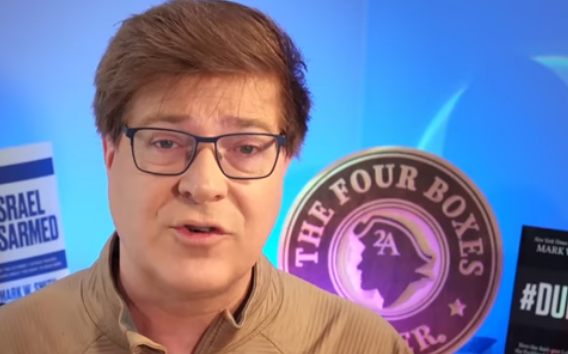I am NOT a Lawyer. That being said, I do analyze large systems all the time. And as my mentor used to say, “The justice system is just a system.”
History of the case:
January 20, 2025: EO 14,169 was signed by President Trump. “It is the policy of the United States that no further United States foreign assistance shall be disbursed in a manner that is not fully aligned with the foreign policy of the President”
This is the long-term goal. No more foreign aid that is at odds with the President’s foreign policy.
for programmatic efficiency and consistency with United States foreign policy…immediately pause new obligations and disbursements of development assistance funds to foreign countries
Stop all foreign aid payments until we have reviewed it for alignment with current foreign policy. Don’t enter into any new contracts while paused.
To you and I, this seems like a logical and reasonable situation. There was a short fuse put on the order of 90 days. Each agency had only 90 days to evaluate the situation and report.
Within the EO, there is an allowance for the Secretary of State to issue waivers. If some entity had a need, and it aligned with our foreign policy, they could get a waiver now to receive funds.
February 10, 2025: Plaintiffs/Respondents (Bad guys) challenged the pause. The alleged violations of the APA and the Constitution.
February 13, 2025: The District court (inferior to the circuit courts which are inferior to the Supreme Court) granted relief. The court did not give the government (good guys) an opportunity to file an opposition brief.
The court said that a pause wasn’t arbitrary or capricious, the government had not considered that aid recipients might be butt hurt.
Having issued the TRO, the State Department started issuing payments again. The difference was that before issuing a payment, they were evaluating how that “aid” aligned with our foreign policy.
The order, however, allowed the agency defendants to “take action to enforce the terms of particular contracts, including with respect to expirations, modifications, or terminations pursuant to contractual provisions.”
The government obeyed the rules as set out by the court. The plaintiffs (still the bad guys) did not see the faucet of cash open, so went whining back to the court claiming that the government was violating the court’s order.
February 24, 2025: One of the plaintiffs filed an emergency motion to enforce the court’s order.
February 25, 2025: The court held another hearing. The court did not give the state time to file a written response to the emergency motion. The court then granted the motion from the bench. (Not a written order, yet)
The court did not address multiple issues the state brought up.
Instead, the court ordered the state to pay all invoices and letters of credit drawdown by 2359 on the 26th.
This amounted to around $2billion. The order ignored due dates, standard accounting practices of verification, and other aspects of the contract.
When I send out an invoice, my clients have a certain amount of time to pay the invoice. Normally, 30 days.
Government contracts often have longer delays built in. IIRC our contracts with the government had 90 day due dates.
What the court ordered was that the government had to pay invoices received by January 24th even if the invoice wasn’t due for many days.
After this hearing and new order, the government filed for an emergency stay pending appeal to the D.C. Circuit court.
The motion asked for an administrative stay by 1300 on the 26th. If not an administrative stay, the government wanted a ruling by 1600. These time frames are very fast, but the government was given about 36 hours to issue 2 Billion Dollars.
February 26, 2025: The Circuit court asked the plaintiffs (bad guys, still) to file a response by 1300. This is the deadline the state put forth for an administrative stay.
The circuit court didn’t issue the stay, nor did they rule on the motions. Instead, they dragged their feet. With time running out, the government appealed to the Supreme Court.
Just before the midnight deadline, Chief Justice Roberts issued an administrative stay. The Court then asked for a response by 1200 on February 28th.
February 28, 2025: Everybody got their briefings in. The state by normal rules can reply to the response.
March 3, 2025: The state filed their reply to the response to the motion.
March 5, 2025: The application was referred to the Court. An opinion was later issued.
Analysis
There is so much going on and so many moving parts, it is easy to get lost without picking up the minutia.
What we wanted was for the Supreme Court to roll up a newspaper and swat the inferior courts across the snoot a few dozen times. They didn’t.
The district court’s order was labeled a TRO, it was acting as a Preliminary Injunction, and the modified order granted relief that before the adversarial part of the case took place.
Said differently, the plaintiffs want the money to flow. The government says that they have paused spending. The plaintiffs seek the relief of having the money flow. The court’s original order said, “The money must flow.” The government started spending. The plaintiffs claimed that it wasn’t fast enough. The court “modified” their original order and said, “let the money flow”.
Thus, the court actually granted the relief the plaintiffs wanted.
What the Supreme Court’s opinion said was: The application is denied
This is the takeaway. The government has to start the money flowing again.
But here are the important parts that aren’t being noticed in some of the postings I’ve seen (all).
… Given that the deadline in the challenged order has now passed, and in light of the ongoing preliminary injunction proceedings, the District Court should clarify what obligations the Government must fulfill to ensure compliance with the temporary restraining order, with due regard for the feasibility of any compliance timelines. …
This is an order to the inferior court to change their order and correct deficiencies.
What the government (good guys) were asking for was time to present their case. The inferior district court stripped them of that right. They were not allowed to respond in writing. They were not given time to make appeals safely. In addition, they were ordered to do things which they cannot recover from.
If they pay some of these bills, there is no clawback available to the government. We know that the entities receiving that money will disperse it so fast heads will spin.
I don’t know what Barrett was thinking, but she sided with the denial of the application. I don’t trust Chief Justice Roberts to take risks. He much prefers the safer path, the more limited opinions. It always surprises me when he does join with
Thomas and the rest of that team.
But, in my opinion, the big takeaway is that the inferior court has to consider feasibility. They have to make sure that their order is clear.
The other part of this is that this should take the case out of the TRO state and into the Preliminary Injunction state. While a case is in the TRO state, there are limits in what can be appealed.





